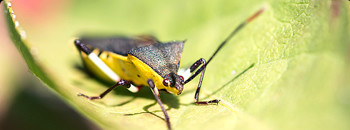
All of us care about the environment and about using lawn and garden pesticides in the safest and most environmentally sound way when dealing with home and garden pest problems. One way to ensure lawn and garden pesticides do not harm pollinators is to read and follow all insecticide product instructions.
With the spring planting season right around the corner, we pulled together four facts about insecticides called neonicotinoids and bee health:
- Bee health is a complex issue. Many studies find no link between decline in pollinator health and neonicotinoids, according to the U.S. Department of Agriculture’s “Report on National Stakeholders Conference on Honey Bee Health.” The report found a “complex set of stressors and pathogens” is associated with declining pollinator health, including parasites, microbial diseases, bee management practices, and climate change.
- Neonicotinoids help control insects – on plants and pets. Neonicotinoids keep lawns and gardens free from damaging insects like aphids, shield homes from termites, protect nursery plants and crops, and protect pets from fleas and ticks. As is the case with all pesticides, when they are applied correctly neonicotinoids can be used safely and will not harm pollinators.
- Communication, collaboration, and effective stewardship is needed. Each of us has an important role in the conversation about pesticide use and pollinator health. Get the facts and read product labels to become an educated consumer.
- EPA’s regulatory process rigorously reviews all pesticides. Neonicotinoid insecticides are registered under U.S. EPA’s reduced risk program due to their favorable health and environmental profile. The EPA relies on its gold-standard risk assessments using the most current scientific information and standards. Even after a product is approved, the EPA continues to review each registered pesticide to ensure it continues to meet these standards over time. Visit the EPA website at www.epa.gov.
To learn more about keeping your family, community and pollinators healthy and safe, follow Debug the Myths on Facebook at facebook.com/debugthemyths and Twitter @DebugTheMyths.

